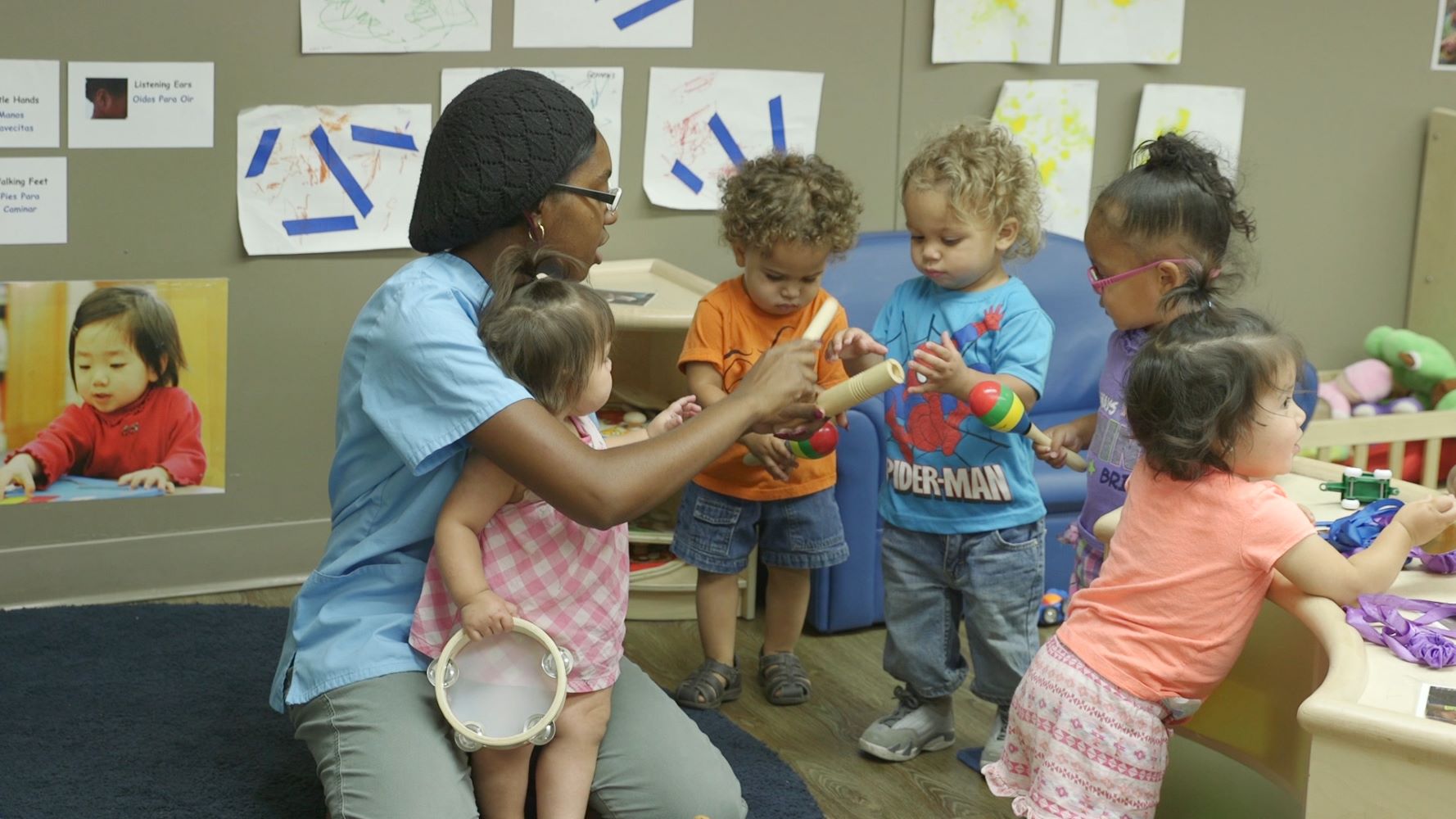 To individualize care for infants and toddlers effectively, education staff require:
To individualize care for infants and toddlers effectively, education staff require:
- Knowledge of child development and the typical sequence of development in the five central Early Learning Outcomes Framework (ELOF) domains
- Firm understanding of attachment theory and belief in the significance of supporting infant attachment
- Deep understanding of each child, gained through informal observation, ongoing child assessment, and ongoing, engaged dialogue with children’s families
- Cultural sensitivity
- High degree of self-awareness
- Knowledge of strategies for individualizing care
Individualizing care also requires time, effort, and practice. Infants and toddlers benefit when teachers, home visitors, and family child care providers receive:
- Planned professional development opportunities that focus on topics such as:
- Infant and toddler development
- Foundations of school readiness
- Importance of adult-child relationships and attachment
- Observation, ongoing child assessment, and use of assessment results to individualize care
- Responsive care practices and how individual characteristics such as the child’s age, abilities, needs, interests, temperament, home language, and family culture may impact responsive care
- Creating and maintaining appropriate environments
- Supporting infants and toddlers who are dual language learners
- Supporting infants and toddlers with suspected delays and identified disabilities
- Engaging families to support children’s development and learning
- Cultural awareness and sensitivity
- Primary caregiving
- Continuity of care
- Ongoing coaching, mentoring, and reflective supervision
- Regularly scheduled and dedicated time and space for reflecting, planning, and communicating with families
See 45 CFR §1302.92(b)(1)-(5) and (c)(1)-(5). Also, see the Appendix for questions about individualizing care to use as discussion starters with education staff and other program leaders.
Read more:
Resource Type: Article
National Centers: Early Childhood Development, Teaching and Learning
Last Updated: December 22, 2020